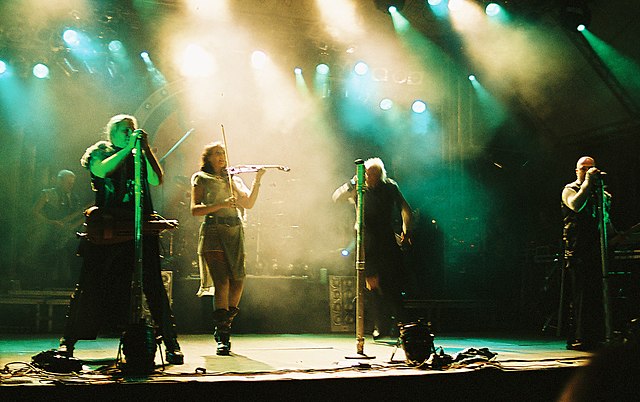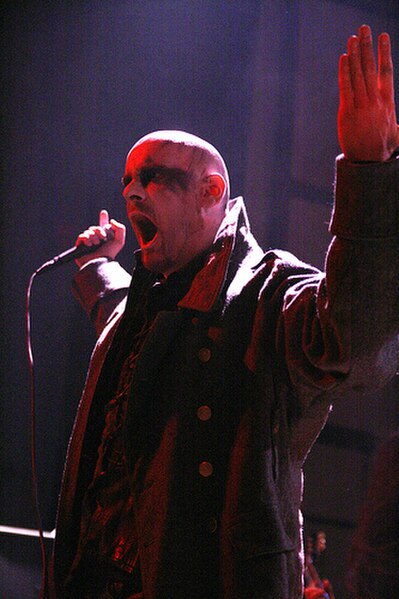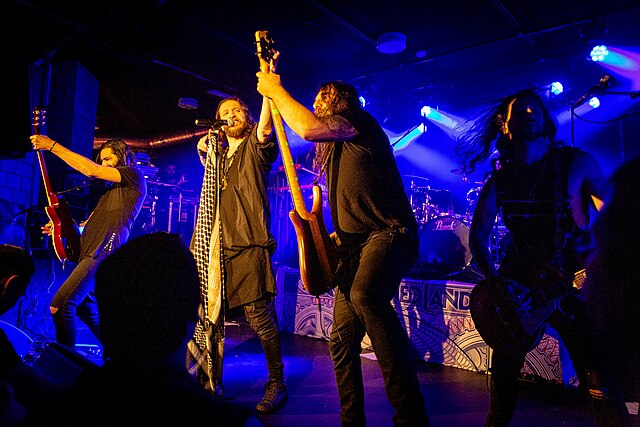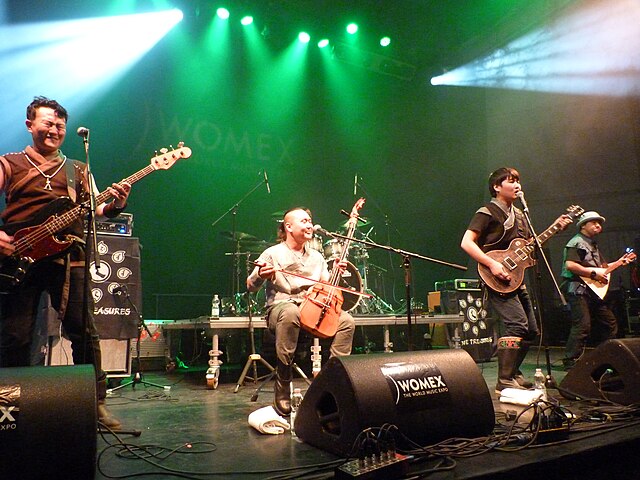Folk metal is a fusion genre of heavy metal music and traditional folk music that developed in Europe during the 1990s. It is characterised by the widespread use of folk instruments and, to a lesser extent, traditional singing styles. It also sometimes features soft instrumentation influenced by folk rock.
Subway to Sally, seen here performing live at the 2005 Sundstock Openair, has been credited as setting off medieval metal.
A.A. Nemtheanga fronts the Irish Celtic black metal act Primordial.
Orphaned Land is a leading performer of oriental metal.
Nine Treasures performing at WOMEX 15, Budapest
Folk music is a music genre that includes traditional folk music and the contemporary genre that evolved from the former during the 20th-century folk revival. Some types of folk music may be called world music. Traditional folk music has been defined in several ways: as music transmitted orally, music with unknown composers, music that is played on traditional instruments, music about cultural or national identity, music that changes between generations, music associated with a people's folklore, or music performed by custom over a long period of time. It has been contrasted with commercial and classical styles. The term originated in the 19th century, but folk music extends beyond that.
Béla Bartók recording peasant singers in Zobordarázs, Kingdom of Hungary, (now Nitra, Slovakia) 1907
Viljandi Folk Music Festival held annually within the castle ruins in Viljandi, Estonia.
Indians always distinguished between classical and folk music, though in the past even classical Indian music used to rely on the unwritten transmission of repertoire.
Indian Nepali folk musician Navneet Aditya Waiba








